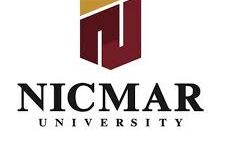The nine-year-study, first of its kind in India, was led by well-known Mumbai orthopedic surgeon Dr. Amyn Rajani. It involved 191 knees from 180 patients
MUMBAI, July 21, 2025: A significant number of knee arthritis patients in India may not require a Total Knee Replacement (TKR), according to a nine-year study conducted by Mumbai’s leading orthepedic surgeon Dr. Amyn Rajani. The research, published in the Journal of Clinical Orthopaedics and Trauma, shows that nearly 50% of knee patients in India suffer from arthritis confined only to the medial compartment of the knee, meaning a full knee replacement may be unnecessary for them.
Commenting upon the research, Dr. Amyn Rajani said: “The knee consists of three compartments : the medial (34%), lateral (33%), and patellofemoral (33%). In most patients, arthritis affects only the medial compartment, leaving the remaining 66% of the knee completely normal and functional. For such patients, Partial Knee Replacement, also known as Unicompartmental Knee Replacement (UKR), offers a safer and more effective alternative. This procedure replaces only the damaged medial compartment, preserving the healthy parts of the knee. Performing a Total Knee Replacement for patients with arthritis limited to the medial compartment means unnecessarily removing the healthy 66% of the knee and replacing it with an artificial implant.”
Patients who undergo Partial Knee Replacement experience a much faster recovery compared to Total Knee Replacement. Moreover, since the natural parts of the knee are preserved, patients retain the ability to perform activities that are often restricted after a total knee replacement, such as sitting cross-legged and squatting, activities that are culturally significant for many Indians. Despite its clear benefits, Partial Knee Replacement is underutilized in India due to factors such as limited surgeon experience and lack of patient awareness.
Said Dr. Rajani, “Although not all patients are candidates for Partial Knee Replacement, there is a well-defined and strict selection criteria followed worldwide for this surgery. However, nearly 50% of patients currently undergoing Total Knee Replacement in India actually fit this criteria and could be offered Partial Knee Replacement instead. International studies consistently confirm the excellent mid- and long-term outcomes of Partial Knee Replacement, reinforcing that this procedure is a highly viable and reliable alternative to Total Knee Replacement when applied to the right patients.”
According to Dr. Rajani, there is a need for greater awareness among patients and training among orthopedic surgeons to encourage the wider adoption of Partial Knee Replacement in India. This not only preserves more of the natural knee but also ensures better functional outcomes, quicker recovery, and improved quality of life.
The prospective, observational study, first of its kind in India, was led by Dr. Amyn Rajani as the primary author, along with his former fellows: Dr. Anmol Mittal, Dr. Vishal Kulkarni, Dr. Urvil Shah, and Dr. Rishab Dubey who are now independent orthopedic practitioners. It was conducted at a single center in Mumbai from September 2014 to September 2024, and included 191 knees from 180 patients. The research evaluated mid-term outcomes of the Oxford Partial Knee Replacement, with a minimum follow-up of 5 years and up to 9 years. The results were impressive, showing a survivorship rate of 96.85% over 5 years.
 Newspatrolling.com News cum Content Syndication Portal Online
Newspatrolling.com News cum Content Syndication Portal Online







